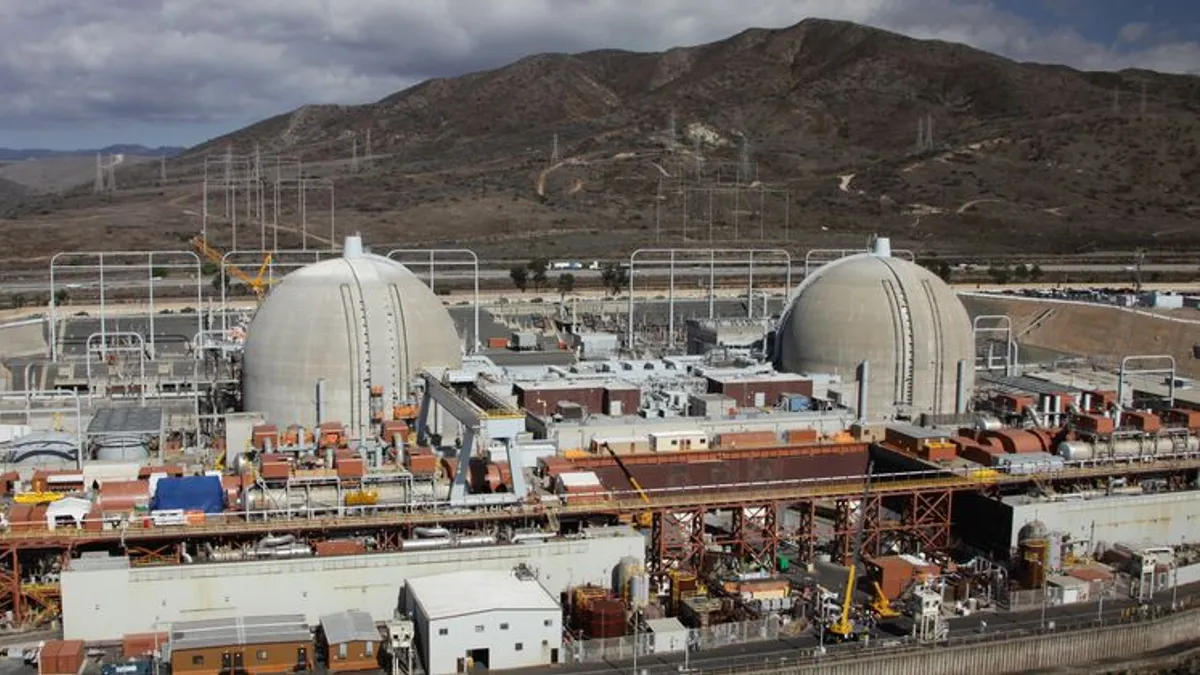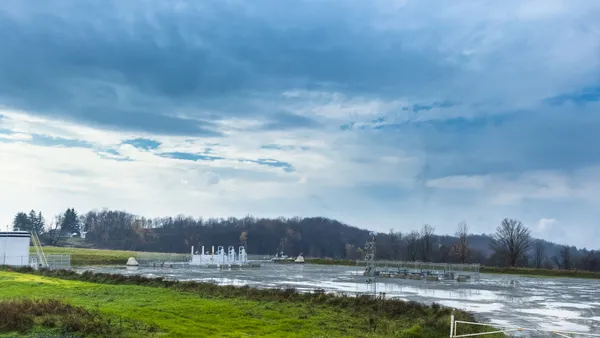Dive Brief:
- Regulatory costs and processes would not have impacted the early retirement of nuclear plants based on "the magnitude of the economic losses here," Nuclear Regulatory Commission (NRC) Chair Kristine Svinicki said Thursday.
- Her remarks followed questions from Federal Energy Regulatory Commission (FERC) Commissioner Robert Powelson regarding regulatory compliance costs for nuclear plants, given their "razor-tight margins" for operating.
- The Department of Energy (DOE) is considering options to aid the nuclear and coal power sectors under a directive from President Donald Trump. A draft memo revealed an option involving federal subsidies to coal and nuclear plants at risk of closure, under the authority of two seldom-used federal laws.
Dive Insight:
Prior to the joint meeting of the two regulatory commissions, FERC Chair Kevin McIntyre and DOE Undersecretary Mark Menezes delivered keynote speeches at the Energy Information Administration conference. As expected, nuclear power featured heavily in Menezes'comments, from the U.S. Atomic Energy Act to "the alarming rate of retiring baseload generation." He also said the agency is looking to "potentially site" one or two U.S. modular nuclear reactors.
McIntyre said he trusted DOE Secretary Rick Perry to make the right decision regarding a nuclear and coal plant bailout, indicating that FERC may not have a large role in the subsidy settlement process.
The discussion at the first public joint meeting this year between NRC and FERC featured several questions about plant retirement trends and processes. Powelson, who acknowledged the threat of lowering natural gas costs to the nuclear power sector, shared a claim from an unnamed company "that the NRC imposes significant requirements on nuclear power plants that increase regulatory costs."
"Recently, I think utilities are looking for what's in their control," Brian Holian, acting director of the NRC's Office of Nuclear Reactor Regulation, told Powelson. For example, he noted that the competitive costs on the market are out of the utilities' control, leading them to shift focus on the costs they can incur through power upgrades and plant changes, which involve a regulatory review aspect. To help with those decisions, the NRC has tried to better forecast its review hours and what it would cost utilities to file license amendments, Holian said.
The NRC is prioritizing a smart and effective regulatory system that is mindful of its economic impact and "that isn't so safe that it means no reactors operate or are built anywhere," Svinicki said.
"But the plants that shut down early to date, I've seen a little bit of the profit and loss statements and I don’t know what on Earth the regulator could have done that could have saved those units," Svinicki said.
Holian added that the cost of NRC regulation has been appropriate along with the level of regulation needed to ensure the safe operation of plants. He said the NRC has an effort underway to streamline its operations and that a paper on the commission's cost of regulation will be public soon.
Powelson is from Pennsylvania, which hosts several plants that are facing early retirement, including FirstEnergy Solution's Beaver Creek facility. FirstEnergy's Chief Nuclear Officer Don Moul said the DOE bailout would not save the plant without "additional support at the state level," the Beaver Creek Times reported.
"There's not a CEO of a company right now that would leverage the market capital of their company to build a nuclear plant," Powelson said in his comments to NRC staff.














